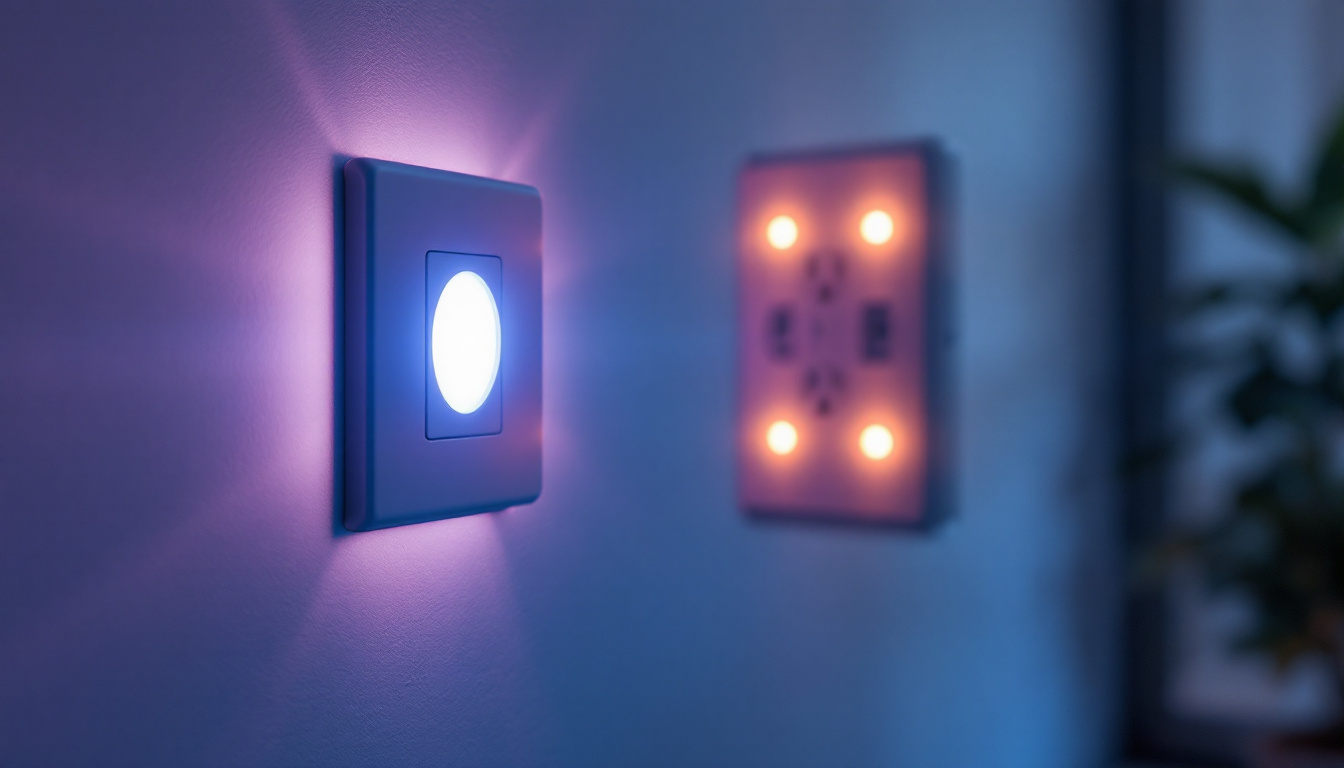
As the demand for sustainable energy solutions continues to grow, solar lighting has become an increasingly popular choice for both residential and commercial applications. However, a common question arises: do solar lights need to be in direct sunlight? This article will explore this question in detail while also examining the qualities that set top lighting contractors apart in the industry.
Solar lights operate by converting sunlight into electricity through photovoltaic cells. This energy is stored in batteries and used to power the light when needed, typically at night. The efficiency of solar lights largely depends on their exposure to sunlight, but the specifics can vary based on several factors.
While solar lights perform best in direct sunlight, they can still function with indirect sunlight. However, the amount of light produced may be significantly reduced. For optimal performance, it is recommended that solar lights be placed in areas where they can receive at least six to eight hours of direct sunlight each day. This ensures that the batteries are fully charged and can provide adequate illumination during the night. It’s also worth noting that the type of solar light can influence how effectively it harnesses sunlight; for example, lights with larger solar panels can capture more energy, making them more efficient in less-than-ideal conditions.
Several factors can influence how well solar lights operate, including the angle of the sun, seasonal changes, and surrounding obstructions. For instance, during winter months, the sun’s angle is lower in the sky, which can reduce the amount of sunlight hitting the solar panels. Additionally, trees, buildings, or other structures can cast shadows, further limiting exposure. The geographical location also plays a role; regions closer to the equator generally receive more consistent sunlight throughout the year compared to those situated at higher latitudes. This variability can affect not only the brightness of the lights but also their overall longevity and efficiency.
The quality of the battery used in solar lights also plays a crucial role in their performance. Higher-quality batteries can store more energy and have a longer lifespan, making them more efficient in various lighting conditions. Advanced technologies, such as lithium-ion batteries, are becoming more common, offering better performance compared to traditional lead-acid batteries. Moreover, some solar lights now come equipped with smart technology that allows for adaptive brightness settings based on the surrounding light conditions, further optimizing energy use. This means that during brighter nights, the lights can dim slightly, conserving battery life while still providing sufficient illumination.
Another important aspect of battery technology is the charging cycle. Many modern solar lights are designed to withstand numerous charge and discharge cycles without significant degradation, which is essential for long-term use. Additionally, the integration of solar lights with smart home systems is becoming increasingly popular. This allows users to monitor battery levels, control lighting schedules, and even adjust brightness remotely, enhancing both convenience and efficiency. As solar technology continues to evolve, we can expect even more innovative features that will improve the functionality and sustainability of solar lighting solutions.
Solar lighting offers numerous advantages that make it an attractive option for both contractors and clients. Understanding these benefits can help contractors make informed recommendations to their customers.
One of the most significant benefits of solar lighting is its energy efficiency. By harnessing sunlight, these lights reduce reliance on grid electricity, leading to lower energy bills. Additionally, the initial investment in solar lights can be offset by the long-term savings on electricity costs, making them a cost-effective solution over time.
Solar lights contribute to a reduced carbon footprint, as they do not rely on fossil fuels for energy. By promoting the use of renewable energy sources, contractors can help clients make more environmentally friendly choices. This aspect is increasingly important to consumers who are looking for sustainable solutions.
Solar lights come in a variety of styles and designs, making them suitable for various applications, from garden lighting to security lighting. Their versatility allows contractors to offer customized solutions that meet the specific needs and preferences of their clients. Furthermore, the aesthetic appeal of solar lights can enhance outdoor spaces, adding value to properties.
In a competitive market, not all lighting contractors are created equal. Understanding what distinguishes the best in the field can help clients make informed decisions when selecting a contractor for their solar lighting projects.
Top lighting contractors possess a wealth of knowledge and experience in the industry. They understand the nuances of solar lighting systems, including installation techniques, maintenance requirements, and the latest technological advancements. This expertise enables them to provide clients with tailored solutions that maximize efficiency and effectiveness.
Quality is paramount in the lighting industry. Leading contractors prioritize high-quality products and materials, ensuring that their installations are durable and reliable. They often work with reputable manufacturers and suppliers, guaranteeing that clients receive the best products available on the market.
A customer-centric approach is a hallmark of top lighting contractors. They take the time to understand their clients’ needs and preferences, offering personalized recommendations and solutions. This level of service fosters trust and builds long-lasting relationships, which can lead to repeat business and referrals.
Proper installation is crucial for the optimal performance of solar lights. Contractors must consider various factors to ensure that the lights function effectively and meet the expectations of their clients.
Before installation, a thorough site assessment is essential. This involves evaluating the area where the solar lights will be placed, identifying potential obstructions, and determining the best locations for maximum sunlight exposure. A well-conducted site assessment can significantly enhance the performance of solar lights.
The placement and orientation of solar lights are critical for their efficiency. Contractors should ensure that the lights are positioned to receive the most sunlight throughout the day. This may involve adjusting the angle of the solar panels or relocating the lights to avoid shadows from nearby structures.
While solar lights require less maintenance than traditional lighting systems, regular upkeep is still necessary to ensure optimal performance. Contractors should educate clients on the importance of keeping solar panels clean and free from debris, as this can significantly impact the lights’ ability to charge effectively.
Despite the growing popularity of solar lighting, several myths persist that can mislead potential customers. Addressing these misconceptions can help contractors provide accurate information and build trust with their clients.
One common myth is that solar lights do not provide sufficient brightness. While it is true that some lower-quality solar lights may have limited illumination, many modern solar lights are equipped with advanced LED technology, offering bright and efficient lighting options that can rival traditional electric lights.
Another misconception is that solar lights are only effective in sunny areas. While direct sunlight enhances their performance, solar lights can still function in cloudy or overcast conditions. However, it is essential to choose high-quality solar lights designed to operate efficiently in various weather conditions.
Many potential customers believe that solar lights are prohibitively expensive. While the initial investment may be higher than traditional lighting, the long-term savings on energy costs and maintenance often make solar lights a more economical choice over time. Additionally, advancements in technology have led to more affordable options on the market.
The solar lighting industry is constantly evolving, with new technologies and trends emerging regularly. Staying informed about these developments can help contractors remain competitive and provide cutting-edge solutions to their clients.
Smart technology is making its way into solar lighting systems, allowing for enhanced functionality and control. Features such as motion sensors, remote control, and integration with smart home systems are becoming increasingly common. These advancements not only improve convenience but also enhance energy efficiency.
As battery technology continues to advance, solar lights are becoming more efficient and reliable. Innovations in battery design, such as faster charging times and longer lifespans, are making solar lighting a more attractive option for consumers. Contractors should stay updated on these developments to offer the best products to their clients.
Future trends indicate a growing integration of solar lighting with other renewable energy sources, such as wind or hydro power. This hybrid approach can enhance energy efficiency and provide a more reliable power source for lighting systems. Contractors who embrace these innovations will be well-positioned in the evolving market.
Solar lights offer an efficient, sustainable, and versatile lighting solution that can benefit both contractors and their clients. While direct sunlight is ideal for optimal performance, solar lights can still function effectively in various conditions. Understanding the nuances of solar lighting, along with the qualities that set top lighting contractors apart, can help professionals succeed in this growing industry. By staying informed about advancements and addressing common misconceptions, contractors can provide valuable solutions that meet the needs of their clients while promoting sustainable practices.
Ready to elevate your solar lighting installations with products that promise efficiency, sustainability, and unmatched value? Look no further than LumenWholesale. We provide contractors with spec-grade lighting solutions that meet the highest industry standards, ensuring every project shines with reliability and performance. Say goodbye to inflated markups and hello to wholesale pricing, free shipping, and the convenience you deserve. Make the smart choice for your lighting needs and explore our collection for Wholesale Lighting at the Best Value today.

Discover how lighting contractors can enhance their projects and streamline installations with innovative LED magnetic lights.

Discover innovative hacks for smart lighting contractors focusing on single receptacle outlets.

Discover the essential insights from lighting contractors on choosing the perfect overhead lights for your kitchen.

Discover expert insights and top resources from lighting contractors to master the art of front porch illumination.